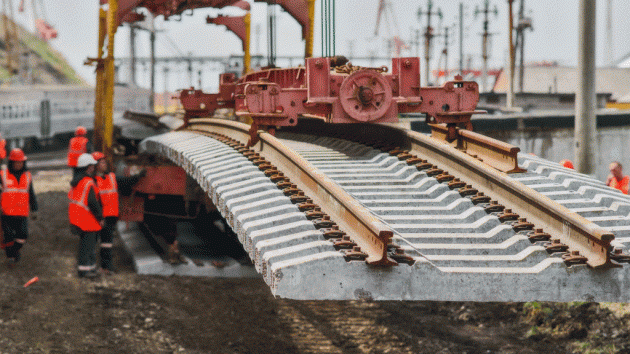National Assembly of Serbia adopts budget for 2018
 Friday, 15.12.2017.
Friday, 15.12.2017.
 08:50
08:50

A total of 150 MPs voted for the budget, 12 were against, no votes were withheld, and two MPs didn’t vote.
The planned fiscal deficit on the level of the Republic amounts to 0.6% of the GDP, that is, RSD 28.4 billion, which is RSD 40.7 billion lower than the deficit planned by the 2017 budget.
In 2018, salary raises by 10% in the public sector and by 5% in the administration are planned, as well as pension raises by 5%.
In addition to this, more money has been secured for investments in the next years as well.
The budget for the next year is planned based on the projection of the next year’s economic growth of 3.5% of the GDP, with the GDP deflator at 2.8% and the retail consumer price index of 2.7%.
A total of RSD 128.3 billion is meant for capital investments, of which the majority, RSD 54 billion, is meant for infrastructure.
Compared to the realization in the current year, the next year’s investments will by 30% higher for the first time, amounting to RSD 180 billion on the state level and RSD 128 billion on the level of the Republic.
The budget tax revenues are expected to equal RSD 988.6 billion, of which the VAT collection should be at RSD 503.4 billion.
The main goals of the next year’s budget are to maintain the achieved macroeconomic stability and to continue implementing the fiscal consolidation measures, as well as to further reduce the share of the public debt in the GDP, a process started in 2016.
Further improvement of the tax system, which has positive effects on the economic activity and employments, while at the same time enabling more efficient tax collection and the reduction of gray economy, remains a priority.
Focus will also be placed on strengthening the stability and the resilience of the financial sector, removing obstacles to economic growth and raising competitiveness by carrying out thorough structural reforms, continuing the reform of public companies and increasing the total efficiency of the public sector.
 Narodna skupština Republike Srbije
Narodna skupština Republike Srbije
Most Important News
06.04.2024. | Agriculture
Preconditions for Placement of Fresh Blueberries and Dried Plums in Chinese Market Secured

16.04.2024. | News
Jovan Ciric, Leasing Director Retail MPC Properties – MPC Echo symbolizes our desire for good ideas and innovative endeavors to spread freely and bring about positive changes

16.04.2024. | News
10.04.2024. | Finance, IT, Telecommunications, Tourism, Sports, Culture
Creative Industry – What This Serbian Economy Sector Worth EUR 2 Billion Encompasses

10.04.2024. | Finance, IT, Telecommunications, Tourism, Sports, Culture
24.04.2024. | Construction, Healthcare
Price of construction of Tirsova 2 increases to EUR 141.6 million – Contract awarded to consortium of 10 companies

24.04.2024. | Construction, Healthcare
16.04.2024. | News
Economy Fair in Mostar opens – 26 companies from Serbia exhibiting

16.04.2024. | News
24.04.2024. | Construction, Transport
Dates of publishing of tenders for construction of three sections of fast railroad from Belgrade to Nis known

24.04.2024. | Construction, Transport


 Izdanje Srbija
Izdanje Srbija Serbische Ausgabe
Serbische Ausgabe Izdanje BiH
Izdanje BiH Izdanje Crna Gora
Izdanje Crna Gora


 News
News






